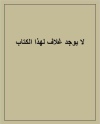Conclusion
The ultimate test is our relationship with death and the unknown. Philosophies and ideologies may debate and argue about their capabilities and compete for popular acceptance on questions of material existence, but how do they stand in relation to death and the life beyond?
We believe that we have the technique for attaining absolute individual freedom in this life. In fact, we view both lives as a continuous process. We provide a social, democratic, legal order that allows the individual to concentrate on his personal tensions and conflicts and resolve them through the process of moral education outlined above. He continues the same processes in the next life.
In this inner activity of moral education, including interaction with others, we recommend the path of the Prophet Mohammed, (Salla Allahu allehi wa salam) as the safest and most direct route. As it has already been stated, there is no compulsion to follow this or any other technique or religion. We only express a genuine and honest opinion, developed from our own personal experience.
Finally, it must be observed, that ours is not a conciliatory ideology or religion, although it does have the quality of reconciliation, a beautiful quality indeed. This, however, is an authoritative direct message. It comes from a man who knows what he is doing and how to do it, Ustaz Mahmoud Mohamed Taha.
Ustaz Mahmoud Mohamed Taha teaches that one is not concerned with the salvation of others except insofar as it is part of his own salvation. Once one is concerned with one’s own salvation, he should seek and identify the truth, and stand by it, regardless of what others do. Allah will give victory to the truth; our duty is to uphold it within ourselves.

